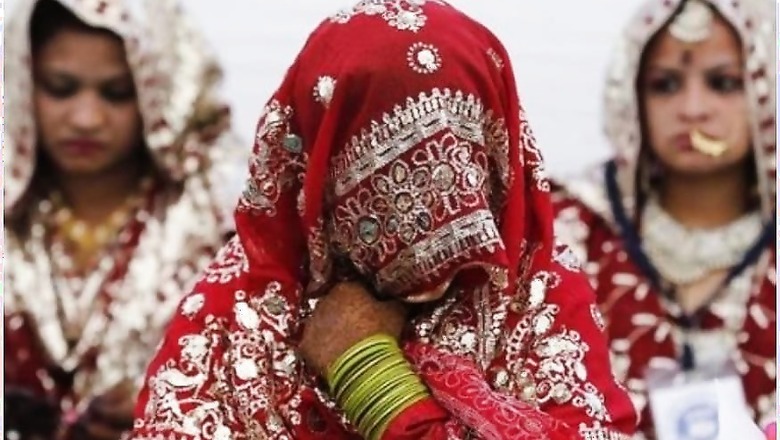
views
Amid fresh debate regarding Section 377 of the IPC, two 20-year-old women from Uttar Pradesh tricked their families and got married at a mass wedding.
One of the women pretended to be the groom and filed papers for marriage with the organisers of the mass wedding, a common practice in UP.
According to a report in Hindustan Times, the two had known each other for about two years. Their parents had no idea that they were in love and planned to marry.
On April 16, the two women showed up to the mass wedding, replete with ID cards and two sets of fake parents. The woman who posed as the ‘groom’ even procured an Aadhaar card in the name of ‘Kartik Shukla’.
It was only on Saturday that the bride’s parents discovered that the ‘groom’ was actually another woman. Both had been staying at the bride’s house.
The ‘groom’ was allegedly spotted by their neighbours, who informed the bride’s parents after the women posted their wedding pictures on social media. The family immediately called the two women and allegedly ‘attacked’ the ‘groom’ inside their house. In fact, the ensuing tussle ended with the ‘bride’ jumping from the roof to ‘save’ Rupa, Times of India reported.
Local police had to come and settle the issue with the parents of the bride alleging cheating by the ‘groom’. However, police said they had to let the two women go as neither of the two women's’ families had filed a complaint against either. The two women are both consenting adults and thus cannot be forced to stay separately if they don’t want to.
Same sex marriage: is it legal in India?
Since 2013, homosexuality is a criminal offence under Section 377 of the Indian Penal Code which criminalises ‘unnatural sex against the order of nature’ and gives authorities the right to prosecute on the basis of sexual orientation or preference.
But while Section 377 criminalises the act of sexual intercourse between same-sex individuals, it does not lay down any specifics regarding same-sex union or marriage. It leaves a grey area for same-sex couples to get married under various religious customs, though it has no legal recognition by the government of India, same-sex relations face widespread taboo and discrimination that often result on violence against the ‘perpetrators’.
The debate around section 377 was reopened in 2017 after the landmark judgment by a Supreme Court bench declaring ‘right to privacy’ as a fundamental right. Some argued that Section 377 was directly at odds with ‘right to privacy’, which had now been declared a fundamental right, and thus Section 377 was impinging upon the rights of the LGBT community.
On Monday, a Supreme Court bench sent a notice to the Centre demanding a response on a PIL that seeks to decriminalise Section 377. The Centre is expected to respond within a week.


















Comments
0 comment